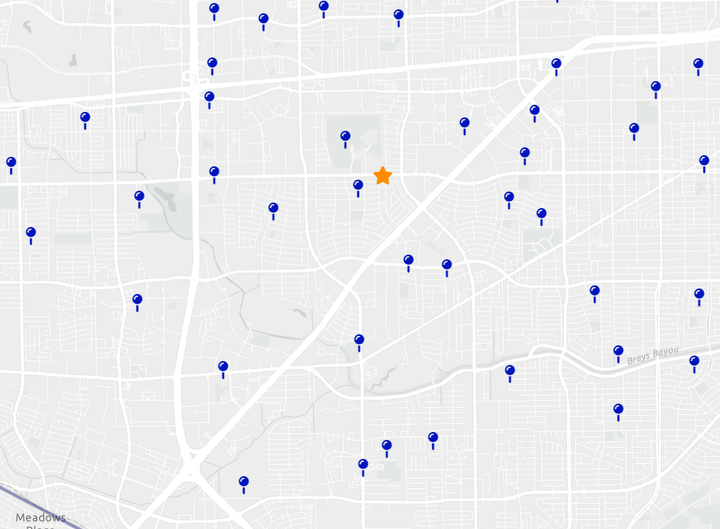Sharpstown Educator Spotlight: David Mathew, Sharpstown HS Animation Teacher

David Mathew has experienced “the full spectrum” of education in more ways than one. He attended public, private, charter, and home school; and he's taught elementary, middle, and high school students. He just finished his fourth year teaching animation and audio/video at Sharpstown High, where he has also experienced having to teach teenagers how to turn a computer on.
Mathew told his story from the brown-grey sofa in his living room, wearing a green and yellow Sharpstown Apollos shirt. He was tired: his eight-month-old son Josiah had been crying the night before. A baby crib and a wicker rocking chair sat along one wall.
Mathew didn’t always want to be a teacher.
He started his journey as a student at St. Thomas Episcopal School, where he “burned out” in 4th grade, stressed and fatigued by the rapid pace. Although the private school put him ahead in math and cursive, he begged his parents to home school him.
They did in 6th and 7th grade. But his parents were busy running a family antique store (in addition to his father’s Exxon job). Their teaching style was “not hands-on”: they gave him books, and he studied by himself.
For 8th grade, he moved to Harmony Science Academy, a charter school in its first year of operation. Many of his teachers, unprepared to deal with student discipline issues, quit that year.
He finished his circuit at Bellaire High, a “very good” school. He got involved in the active, student-led Christian Student Union, then headed to Houston Baptist University (now Houston Christian University), back when it required double majors. He graduated with a degree in Art and Business, unsure what to do with it.
That’s when a friend invited him to work at Learning Skool House, a kinder-6th summer camp and after-school program. The first year was like “learning how to swim by being tossed into the deep end.” But he found that he enjoyed working with kids, seeing their “livelihood and energy,” watching them grow intellectually and personally.
Eventually he “wore a lot of hats” at Skool House: teaching art, marketing, substituting for math, English, and Spanish classes, and working as assistant director.
Mathew moved to teaching middle school at A+ Charter School, then interviewing for a job at Sharpstown High School.
They called to offer him the job as soon as he got home.
Teaching animation comes with unforeseen challenges. Mathew says that 50-70% of his students are “technologically illiterate” when it comes to basic computer skills like typing capital letters, copying and pasting—or even turning the computer on.
Yes, you read that right.
Mathew said many students know how to wake a computer from “sleep” by clicking the mouse (easy enough), but they don’t know how to turn the machine on if it has been completely shut off.
When he shows them the power button, the lightbulbs go on: “Ohhhh.”
But wait, isn’t this the most tech-savvy generation in history? Yes, today’s kids were practically born with smartphones. But smartphones are more “intuitive” than computers. Mathew says that many of his students have never owned or used a computer before taking his class, especially now that HISD no longer requires a basic computer or keyboard class.
But Mathew says he likes teaching an elective: since it has several levels, he can often teach the same students more than once over the course of four years. Sometimes, that allows him to see their growth in ways other teachers may not.
His first year, he taught a “rude” freshman who frequently skipped his class and eventually dropped it.
This past school year, the freshman returned to Mathew’s class as a senior. He still skipped often, but was “immensely more respectful” and “took ownership” of his success in the class.
Mathew’s advice for other teachers? “Treat teenagers like adults… They’re capable of a lot more than we think they are, if we just have higher expectations of them.”
What does that look like? For one thing, even when students have behavioral issues or perform poorly on assignments, “I’ll try not to nag them…I’m respectful to them, still smile at them, don’t get mad at them. I’ve had…kids who would be failing my class because they’re on their phone, they refuse to do the work—but they smile and wave at me in the hallway and they’re really excited to see me, and maybe it’s just because I treat them like an adult.”



Comments ()